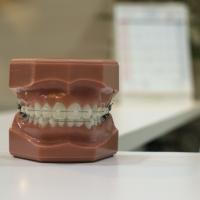Home > Blog > Skin and Body
Belief In Common Skin Care Myths Can Have Disastrous Effects
There are a host of skin care myths we've all been exposed to at some time in our lives. Here are a few of the most common:
Myth: There is no ideal time to apply moisturizer to prevent dry skin.
False: The optimum time to apply a moisturizer, such as a good shielding lotion is right after bathing while your skin is still moist. This will make bathing a moisturizing experience, rather than a skin-drying experience. When your skin completely dries after washing, some of your skin's natural moisture is lost through evaporation. Apply lotion or cream throughout the day as needed.
Myth: Drinking plenty of water makes your skin moist and supple.
False: Though drinking water is essential to good skin care and to keeping your body hydrated, alone a generous water intake doesn't make your skin look moist and supple, nor does it improve wrinkles or make your skin look younger. The amount of moisture in your dry skin is more likely determined by external factors, such as:
1 The amount of humidity in the air
2 How much time you spend in the sun
3 How often you wash your skin
4 The types of soaps, detergents and external irritants to which you are exposed
Myth: The best way to clear up acne is to wash your skin as often as you can.
False: Frequent washing irritates the skin and can actually make acne worse. So can scrubbing your skin too hard or cleansing with harsh soaps or chemicals. Instead, wash problem areas daily with a gentle cleanser and use oil-free, water-based skin care products. An over-the-counter acne cream or gel also helps dry excess oil. Look for products containing benzoyl peroxide or salicylic acid as the active ingredient.
Myth: Skin conditions can be cleared up quickly
False: Some skin conditions such as bacterial infections start improving as soon as you use the right medications. However, many skin conditions such as atopic dermatitis, psoriasis, and seborrhea are chronic, meaning they get better slowly with treatment and reoccur when the treatment stops.
Myth: The fragrance added to skin care products is a nice effect and won't harm my skin.
False: Of the ingredients used to make skin care products, fragrance is the most likely to cause allergic contact dermatitis -- a skin reaction that produces a red rash, bumps and sometimes blisters. If you have sensitive skin or experience an allergic reaction to your skin products, choose those without added fragrances. Select products marked "fragrance-free" or "without perfume," which means that nothing has been added to make them smell good. Products labeled "unscented" contain a fragrance to mask the smell of other ingredients or chemicals.
Myth: Stress has no effect on skin conditions, such as hives, psoriasis and eczema.
False: Stress worsens many skin conditions, including psoriasis, eczema, hives, rosacea and acne. Manage your stress to reduce the occurrence or severity of these bothersome skin conditions.
Myth: There is nothing wrong with a healthy tan.
False: The best way to take care of your skin is to protect it from the sun. Ultraviolet light -- the invisible, but intense rays of the sun -- damages your skin, causing deep wrinkles, dry, rough skin, liver spots, and more serious disorders, such as noncancerous (benign) and cancerous (malignant) skin tumors.
Myth: Shaving makes your hair grow back thicker.
False: Shaving hair doesn't create new, active hair follicles. It also doesn't increase the rate of hair growth or the color or length of your hair. The color, density, location and length of hair mainly depend on genetic factors as well as hormonal factors. When you shave body hair, it may feel coarse or "stubbly" for a time as it grows out. During this phase, it may seem more noticeable.
Myth: Men don't have as many skin problems as women
False: Men wrinkle as much as women and get skin conditions such as acne, seborrhea, atopic dermatitis, and psoriasis just like women. Men also have additional concerns surrounding facial hair. Men typically don't use sunscreen and protect their skin enough.
Dispel the skin care myths, take good care of your skin with a natural skin care routine, maintain a healthy diet and exercise program and you can enjoy younger, clearer, healthier-looking skin for years to come.
Author, Len Simpson, contributes articles on skin care for the National Skin Care Institute. For more information, visit www.skincarenet.org.
More to Read:
Previous Posts:






